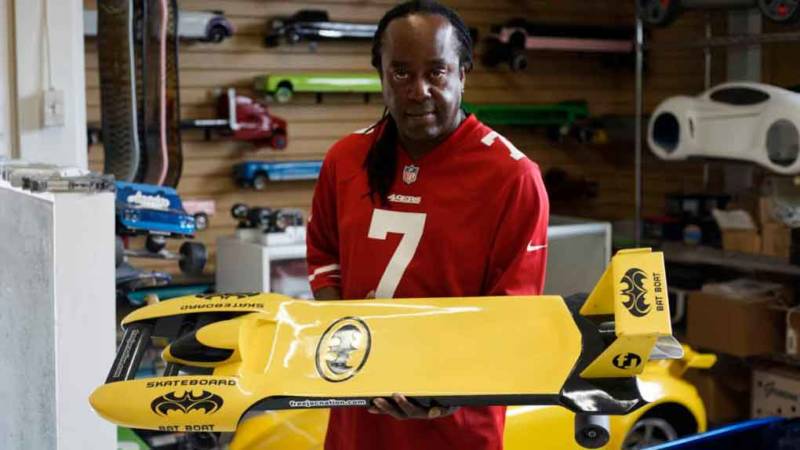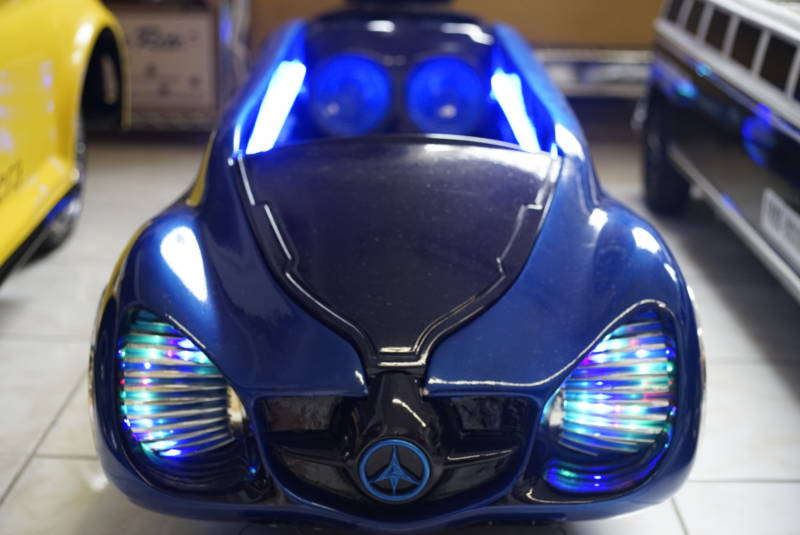Beyond their cool-looking exterior, Powell’s creation caught my eye for crisscrossing some significant storylines of the day: the current price of gas, complaints about potholes in Oakland, the development of citywide bike lanes and, of course, the discussion about tech coming to town.
It also reaffirmed what I already knew: that in the shadow of whatever Silicon Valley has going on, the application of technology and innovation is something that’s been in the hood since day one.
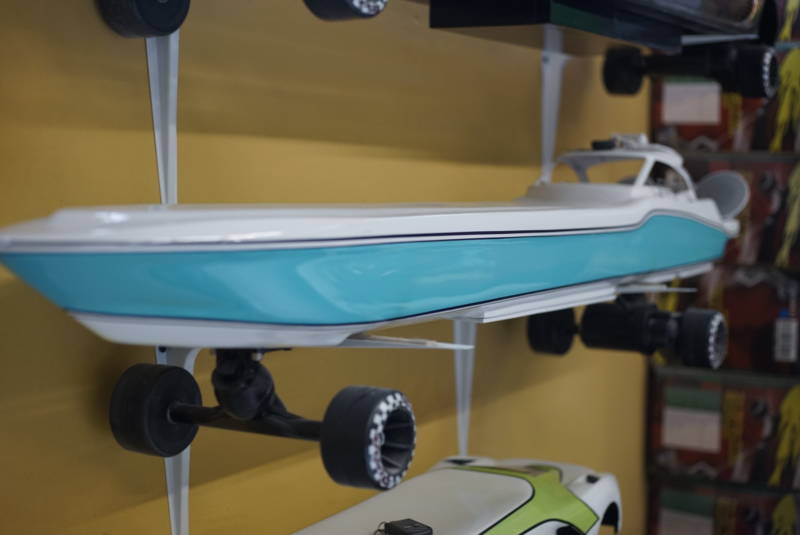
Powell is a middle-aged African American man with cornrows who lives in East Oakland. When he welcomed me into his home, wearing a Kaepernick jersey, he walked me past a showroom-slash-storage room of perfectly lined up skateboards, some battery-powered and some manual. All colorful. A Batman logo on a Batmobile looking board, and the wrapping from Soul Plane on another. Powell handed me a ginger root beer, gutted a cigarillo and started with his origin story.
Professionally, Powell does architectural design. He says he’s always been a do-it-yourselfer. And his earliest memories of creating come from his brother.
“My older brother Quincy, he was the inventor as a kid,” Powell said, leaning up against the kitchen counter and using scissors to break down some weed. “I ended up being the inventor and he ended up going to the pen.”
Powell, who was raised in East Palo Alto (or “Scrilla-Con Valley,” as he calls it), said his older brother could make anything out of anything. “He’d gut my sister’s dolls and put a motor in them,” he said. But the real inspiration for Powell’s work came from the 1992 movie Freejack, starring Emilio Estevez, Rene Russo and Mick Jagger.
In the movie, Mick Jagger’s character time-travels to kidnap Emilio Estevez’s character, and brings him to an old dude played by Anthony Hopkins who wants his consciousness downloaded onto a much younger and healthy body.
This idea inspired the name of Powell’s company, Free Jac Nation.
“Freejacking is when you take something and flip it, and take it to the next level,” said Powell.
“So, with skateboards, I freejacked it.”
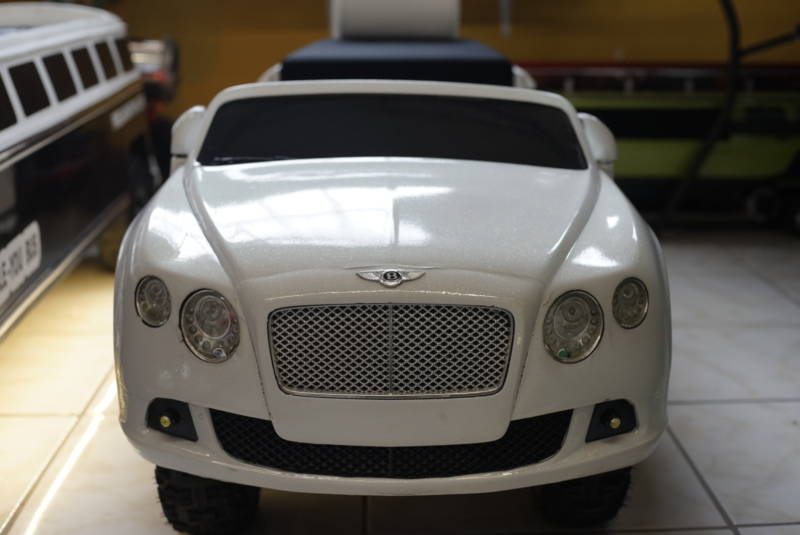
Powell first freejacked a vest with translucent pockets, tailored to hold cell phones in the front and tablets on the back. His next invention was a Bluetooth-enabled skateboard.
“And then I said, I want to make this skateboard that’s shaped like a car,” said Powell, taking a pull from his blunt has he talked.
To make his boards, Powell uses PVC, some plastic and an original mold that he made and patented. He then sends it to a company that stretches the PVC material, and the individual boards are made.
“It’s like Build-a-Bear workshop,” said Powell, passing me the herb. “You can order whatever color stickers, and I’ll custom make it, regular or electric…the other part is this: it comes in a kit.”
I exhaled and then asked: does that mean people can make their own skateboards?
“Yeah,” Powell exclaimed. “The hobby shops are going to love me!”
The DIY boards are the lower-end skateboards; he has some that are fully custom made and cost a bit more. Powell told me his skateboards go from $99 to $19,000.
Of the pricier skateboards, Powell said, “those are custom, there’s a lot of work that goes into them. I call myself the Chanel bag of skateboards. If you buy Jordans, you’ll buy my skateboards. If you buy a Gucci backpack, you’ll buy my skateboards—and you’ll take care of them.”
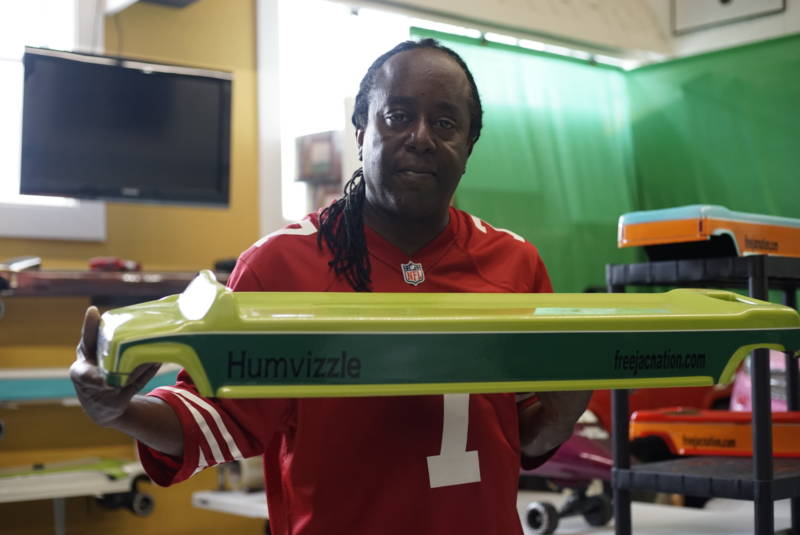
Powell has yet to sell any of the high-end boards, but that may change soon. He’s been in contact with Lil Wayne about them, Snoop Dogg has posted one on social media, and he has E-40’s signature on a Slurricane-themed board. He’s working to get Rick Ross to sign his Maybach one.
Meanwhile, he’s sold over a dozen lower-end models and counting. Some of his battery-powered skateboards, which are controlled by handheld remotes, have dual battery packs. He told me the top speed he’s hit is around 25 mph, on his Volkswagen Bus modeled board, which has two motors.
I damn near blew his high when I asked if he’s fallen off of his board before. “Potholes!” Powell said, as if identifying the enemy. “You’ve got to really look out, my eyes are always on the move: potholes, doors, everyone else,” said Powell. (One time he fell, “I just popped off the goddamn skateboard and was cussing at these damn Oakland streets. Man, these are some raggedy-ass streets. But they’re starting to get better.”)
Powell’s a fan of the developing system of citywide bike lanes, and sees the need for changes to the traffic system in Oakland. He lives just blocks from where Alma Soraya Vasquez, and her 6 year-old son Angel Garcia-Vasquez were killed during a hit-and-run accident last month.
Powell’s creations are just another push for alternative modes of transportation in the urban arena, an addition to the flood of electric scooters and the forthcoming high-speed bus lines. Those are clear signs that “technology” is coming to Oakland. Powell’s creations are a sign that innovation has been here.
Powell’s just getting started—again, he hasn’t sold a single high-end board. But that doesn’t phase him. “If there’s ever a skateboard hall of fame, I might just donate them,” Powell told me.

